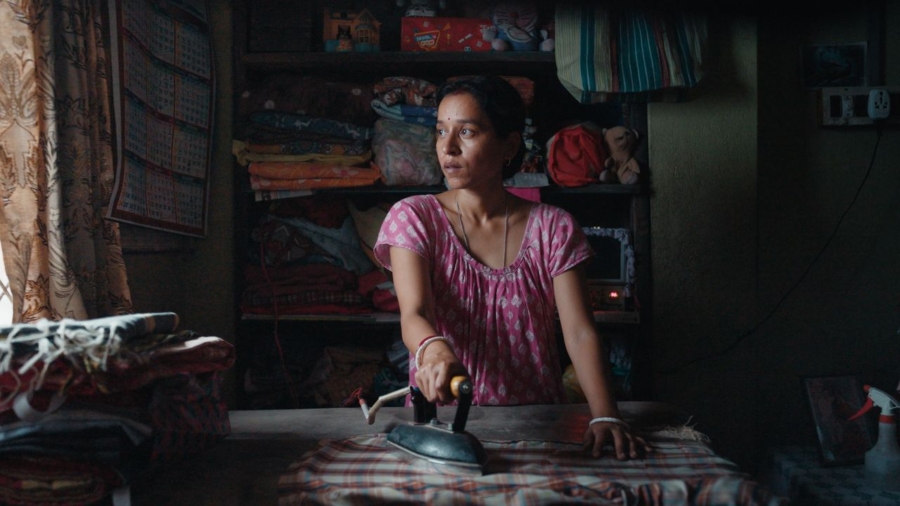Yet through it all, Maya never breaks down. She absorbs life’s chaotic disruptions with a quiet resilience. Shome’s expressive face, which conveys dread, exhaustion and despair with a mere twitch, heightens this restraint. She clings to hope. “Her resilience is shaped by experiences beyond what’s shown in the film,” Sahi explains. “From her clandestine love affair with Sundar to dealing with childbirth to navigating his return from the army, hope has carried her through. This is not her first rodeo.”
That hope is tempered by the realities of being a working Indian woman—a unique position that demands holding everything together. When Maya learns of Sundar’s disappearance, the police insist she accompany them to find him. She refuses because she has to go back to work. For the directors, it was crucial to show rather than tell—there is no self-pity, no grand monologue about how she is stretched thin or why she can’t simply exist. Instead, it is distilled into a single, piercing question: “Am I not a human?”
At the film’s Berlin screening, Shome heard a collective sigh from three women behind her when Maya delivered that line. “Because Kolkata is my home, we realised that the more personal you get, the more universal it becomes,” Das says. The film resonates far beyond its setting—its themes of exhaustion and loneliness in an increasingly chaotic world are deeply familiar. “A woman told us it reminded her of growing up with her mother in an East Berlin.”
Source link












